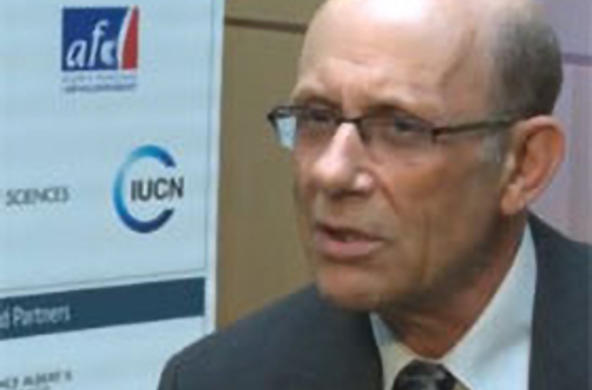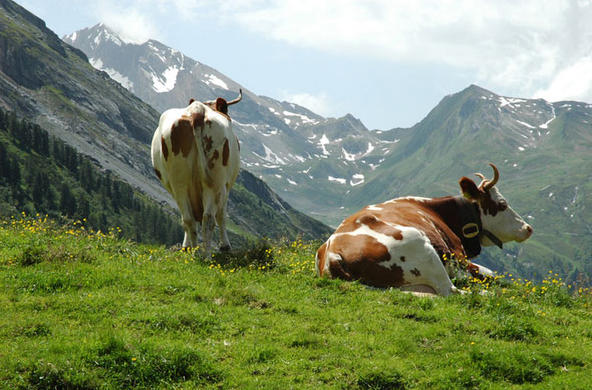- Profile
- Videos & Podcasts
- Past Projects
- Publications
- CV
Clive Jones has spent much of his career studying how organisms physically and chemically modify the non-living environment, and the consequences for other species and ecological processes. This rapidly growing field of science pioneered by Jones is called Ecosystem Engineering. Dam-building beavers, earthworms plowing soil, and plants stabilizing sand dunes are some examples of organisms that serve as engineers in nature.
Humans are clearly ecosystem engineers par excellence; agriculture is but one case in point. Jones explores how ecosystem engineering principles can be applied to understanding human environmental modification, with the goal of improving practices so that there is less collateral adverse impact: for example, allowing rivers to meander, which provides flood control, rather than straightening them. Of particular interest to Jones is the possibility of using nature’s engineers to do environmental modification work: deploying beavers to create habitats for species; reintroducing native earthworms in European farms to enhance soil fertility.
The concept of ecosystem engineering illustrates a more general strategy of both using natural processes and mimicking nature in order to enhance environmental sustainability. Helping to develop ecological engineering as a practical arm of sustainability science has been a central thrust of Jones’s efforts since 2006. Working with French colleagues, he has built a multidisciplinary network of ecological, environmental and social scientists, engineers, management practitioners, business leaders, and government decision makers. Most recently, Jones helped transform an elite engineering and management school in Paris into an ecological engineering and management school.
The best intended environmental ethics and policies can’t bring about change if the capacity for effective implementation is not also present. The immediacy, complexity and interconnectedness of the environmental challenges faced by humanity require a rapid new integration of scientific, technological and management expertise, and a major commitment to training the next generation of managers in sustainable practice of wild lands to cities and all in between. The ecosystem engineering approach is central to this endeavor.
-
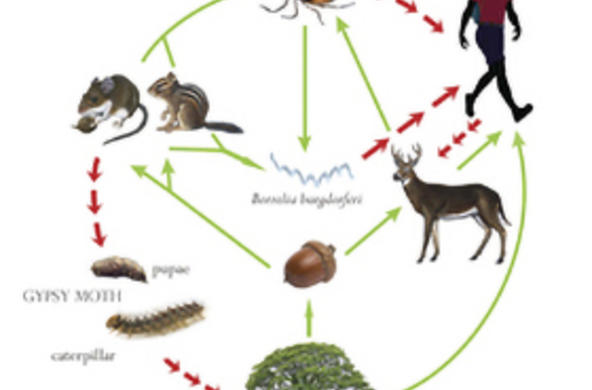
The Acorn Connections
Acorns are a key food for white-footed mice. The mice are key predators on Gypsy Moth pupae. When there are many acorns the mouse population increases, which keeps the moth population low
-
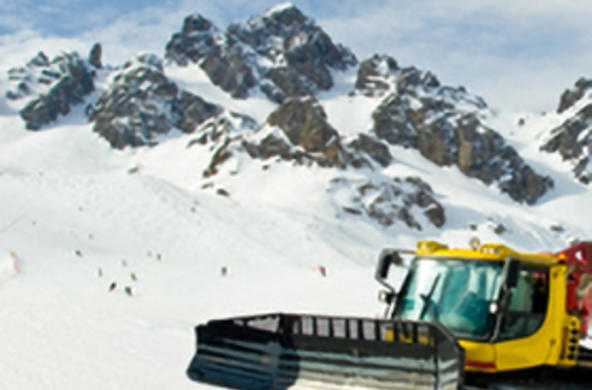
Ecological Engineering
Primary interests in this area are focused on the utilization of ecosystem engineering species; applying lessons learnt from the study of Nature's engineers to human environmental engineering; and the promotion and development of the discipline and practice of ecological engineering.
-
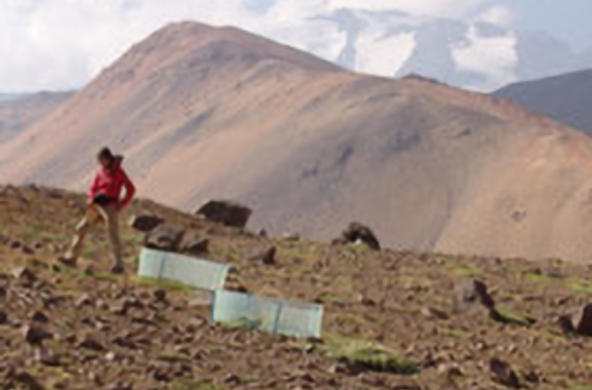
Ecological Synthesis, Integration and Theory
-
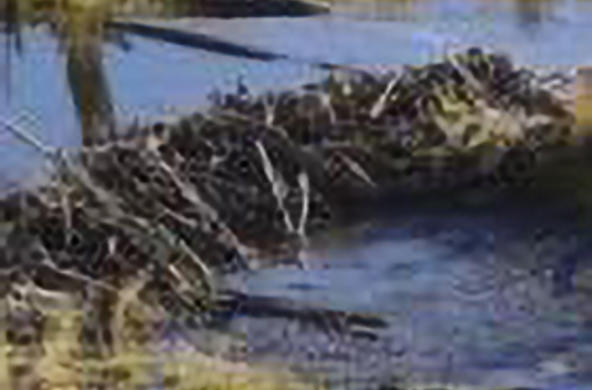
Organisms as Ecosystem Engineers
Dr. Clive G. Jones
Ecologist, Emeritus Senior Scientist
Cary Institute of Ecosystem Studies
Tozer Ecosystem Science Building
2801 Sharon Turnpike (Route 44). P.O. Box AB
Millbrook, N.Y.
Telephone: (845) 677-5343
E-mail: jonesc@caryinstitute.org
Website: https://www.caryinstitute.org/science/our-scientists/dr-clive-g-jones
Google Scholar Profile: https://scholar.google.com/citations?user=2xgMtQcAAAAJ&hl=en&oi=ao
Education
D. Phil. Biology, University of York, UK, 1978
B.Sc. (Honors Class1) Biology, University of Salford, UK, 1974
Professional Positions
Emeritus Senior Scientist, Cary Institute of Ecosystem Studies, 2016 - Present
Senior Scientist, Cary Institute of Ecosystem Studies, 2008 - 2016
Senior Scientist, Institute of Ecosystem Studies, 2004 - 2008
Scientist, Institute of Ecosystem Studies, 1993 - 2004
Associate Scientist, Institute of Ecosystem Studies, 1987 - 1992
Assistant Scientist, Institute of Ecosystem Studies, 1983 - 1986
Chemical Ecologist, Cary Arboretum, 1980 - 1983
Postdoctoral Fellow, University of Georgia, 1978 - 1980
Selected Professional Honors
Royal Netherlands Academy for Arts and Sciences Visiting Professor
Invited Professor, AgroParisTech, Paris, France
Chaire Internationale de Recherche Blaise Pascal
John Simon Guggenheim Memorial Fellow
Elected Fellow, American Association for the Advancement of Science
Winston Churchill Traveling Fellow
British Ecological Society Traveling Fellow
Research Interests
- Ecosystem Engineering – Effects of physical environmental modification by organisms on organismal, population, community, ecosystem and landscape processes
- Ecological Engineering – Utilization of ecological processes for sustainable environmental management
- Ecological Synthesis, Integration and Theory
- The Acorn Connections – Complex interaction webs in oak forests connecting population, community and ecosystem dynamics
- Chemical Ecology – Plant/Herbivore/Microbial/Environment Interactions; evolution of secondary metabolism
Selected Publications (from over 200 including 6 books)
- Mathews, B., De Meester, L., Jones, C. G., Ibelings, B. W., Bouma, T. J., Nuutinen, V., van de Koppel, J. and Odling-Smee, J. 2014. Under niche construction: An operational bridge between ecology, evolution, and ecosystem science. Ecological Monographs 84: 245-263. DOI: 10.1890/13-0953.1.
- Jones, C. G. 2012. Ecosystem engineers and geomorphological signatures in landscapes. Geomorphology 157158: 75-87. DOI:10.1016/j.geomorph.2011.04.039.
- Jones, C. G., J. L. Gutiérrez, J. E. Byers, J. A. Crooks, J. G. Lambrinos, and T. S. Talley. 2010. A framework for understanding physical ecosystem engineering by organisms. Oikos 119:1862-1869.
- Hastings, A., Byers, J. E., Crooks, J. A., Cuddington, K., Jones, C. G., Lambrinos, J. G., Talley, T. S and Wilson, W. G. 2007. Ecosystem engineering in space and time. Ecology Letters 10: 153-164.
- Pickett, S. T. A., J. Kolasa, and C. G. Jones. 2007. Ecological Understanding: The Nature of Theory and The Theory of Nature. Second Edition. Academic Press, Inc., San Diego, California. 233 pp.
- Byers, J. E., Cuddington, K., Jones, C. G., Talley, T. S, Hastings, A., Lambrinos, J. G., Crooks, J. A. and Wilson, W. G. 2006. Using ecosystem engineers to restore ecological systems. Trends in Ecology and Evolution 21(9): 493-500.
- Gutiérrez, J. L., Jones, C. G., Strayer, D. L. and Iribarne, O. O. 2003. Molluscs as ecosystem engineers: The role of shell production in aquatic habitats. Oikos 101: 79-90.
- Wright, J. P., Jones, C. G. and Flecker, A. S. 2002. An ecosystem engineer, the beaver, increases species richness at the landscape scale. Oecologia 132(1): 96-101.
- Jones, C. G., R. S. Ostfeld, M. P. Richard, E. M. Schauber, and J. O. Wolff. 1998. Chain reactions linking acorns to gypsy moth outbreaks and Lyme disease risk. Science 279:1023-1026.
- Jones, C. G., J. H. Lawton, and M. Shachak. 1997. Positive and negative effects of organisms as physical ecosystem engineers. Ecology 78:1946-1957.
- Jones, C. G., and J. H. Lawton (eds.). 1995. Linking Species and Ecosystems. Chapman & Hall, Inc., New York. 387 pp.
- Jones, C. G., J. H. Lawton, and M. Shachak. 1994. Organisms as ecosystem engineers. Oikos 69:373-386.
- Jones, C. G. and Firn, R. D. 1991. On the evolution of plant secondary chemical diversity. Phil. Trans. Royal Society (London) B. 333: 273-280.
Clive Jones is recognized as the founder of the basic and applied research field of ecosystem engineering. He was a founder of the Ecological Engineering Applications Group in France; a founding editorial board member of the journal SAPIENS (Surveys and Perspectives Integrating Environment and Society); an editorial board member and Associate Editor for Functional Ecology; and a special issues editor for BioScience and Ecological Engineering. He was an international expert for the Institut Veolia and has served on numerous international advisory boards and panels. He is a contributing consultant on ecosystem engineering for Guinness World Records; and a member of the Board of Directors of This is My Earth.org.

